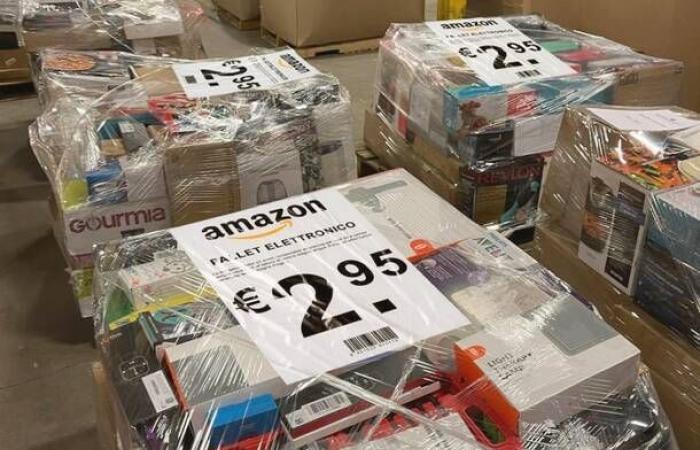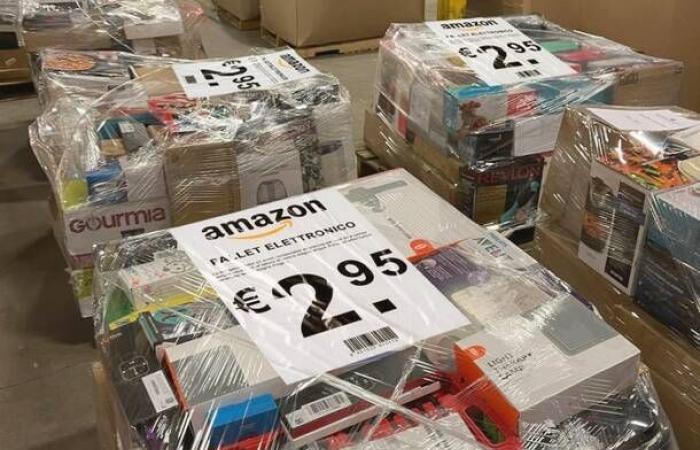Pallets of packages piled up outside warehouses, Amazon logos everywhere, packages of items of all kinds barely protected by a thin layer of cellophane. But above all the price: only 2.95 euros for an entire pallet of goods. All it needed was a little more graphic work to make everything really believable. The Amazon unclaimed package scam is back on Facebook.
The mechanism of the scam
The scam often begins with sponsored posts. As users scroll through the social media feed, they come across messages like: “Amazon is clearing its warehouses of unclaimed packages. To avoid disposal costs, the company has decided to put them up for grabs. By answering a few questions, you can win a pallet of various electronic devices for 2.95 euros.” Despite being a scam, the post meets Facebook’s sponsorship criteria.
Sponsored posts typically include a link to an external site. Here, visitors are asked to complete a short survey and provide their personal details and credit card details to cover the supposed shipping costs of 2.95 euros. However, once data is entered, users receive nothing in return and often find themselves victims of identity theft or unauthorized charges.
Why the Amazon unclaimed package scam is successful
This scam uses several psychological levers to attract victims:
- The apparent authenticity: The use of the Amazon logo and package images makes it very believable.
- The attractive price: The idea of getting a whole pallet of electronic products for just 2.95 euros is extremely attractive.
- The urgency: Posts often indicate that the offer is limited in time, prompting users to react quickly without thinking too much.
How to protect yourself from scams of this kind
To avoid falling victim to these scams, it is important to follow a few simple rules:
- Be wary of overly tempting offers: If an offer seems too good to be true, it’s probably a scam.
- Verify URL: Before entering personal information, always check the URL of the site to ensure it is legitimate.
- Do not share sensitive data: Never provide personal information or credit card details on suspicious sites.
- Report Posts: If you come across a suspicious post on Facebook, report it to the social network immediately.
It is also good to be careful of the many comments that you can find because they belong to fake profiles or generated for the specific campaign. Often when critical ones are published, they are promptly deleted.







